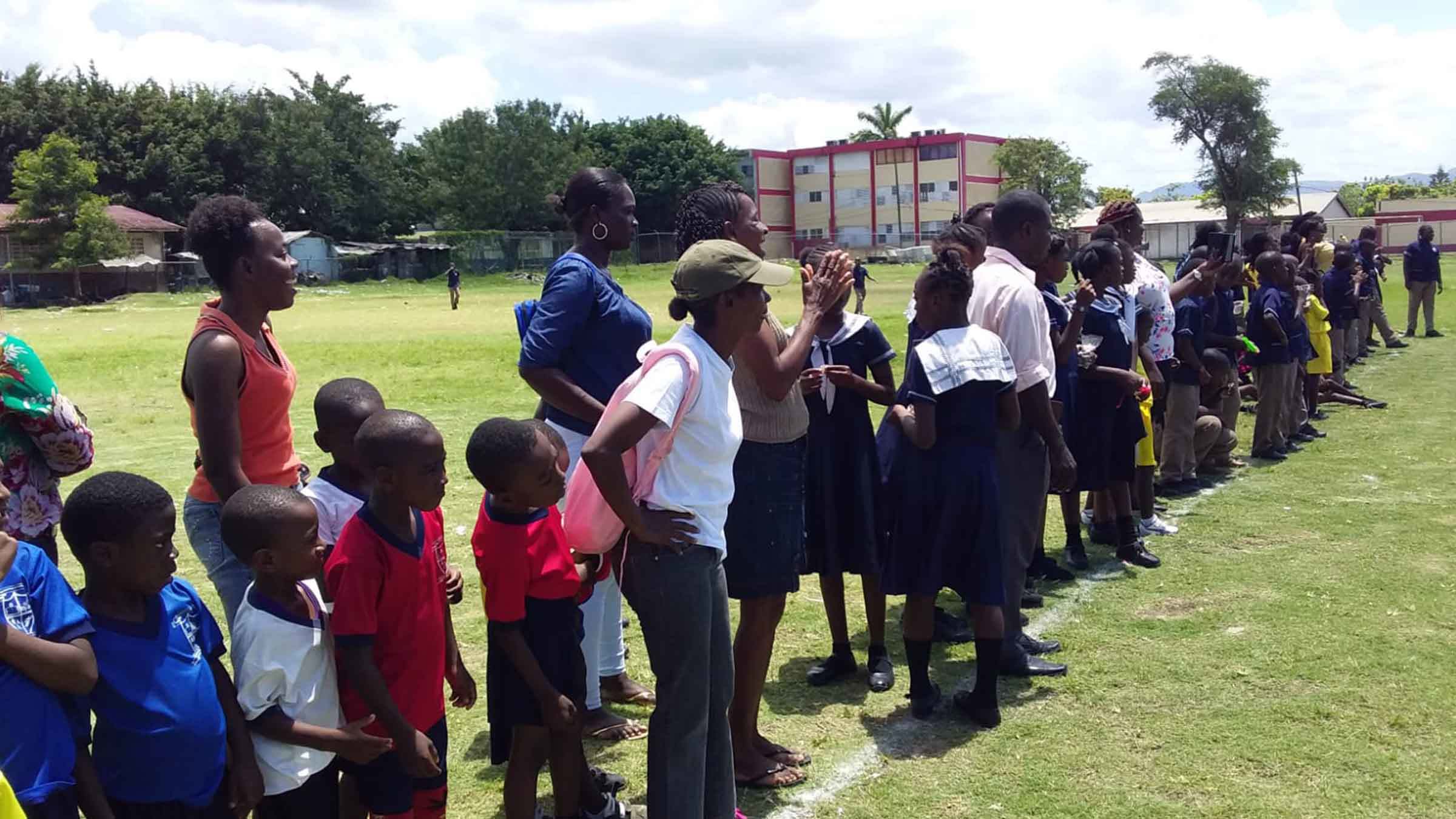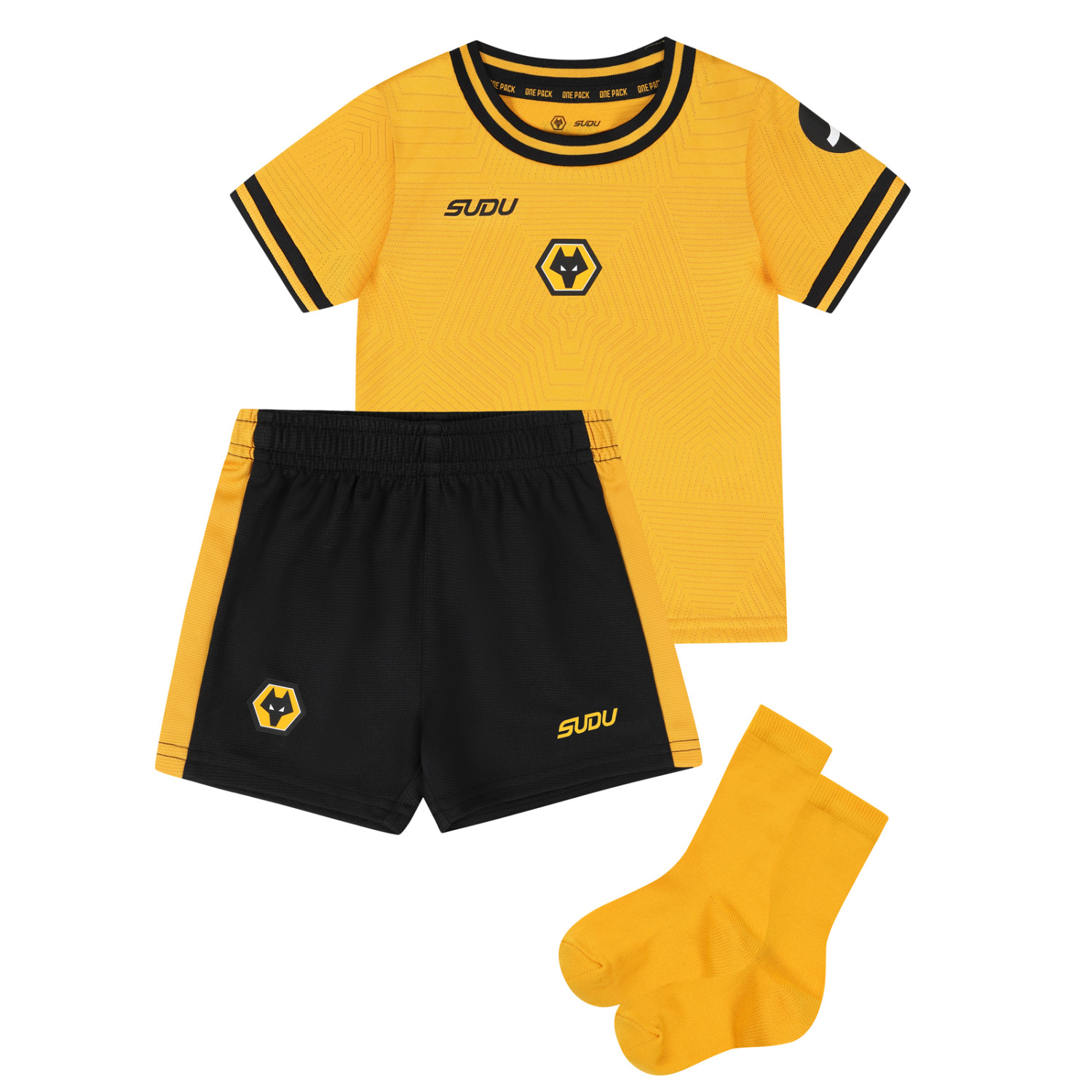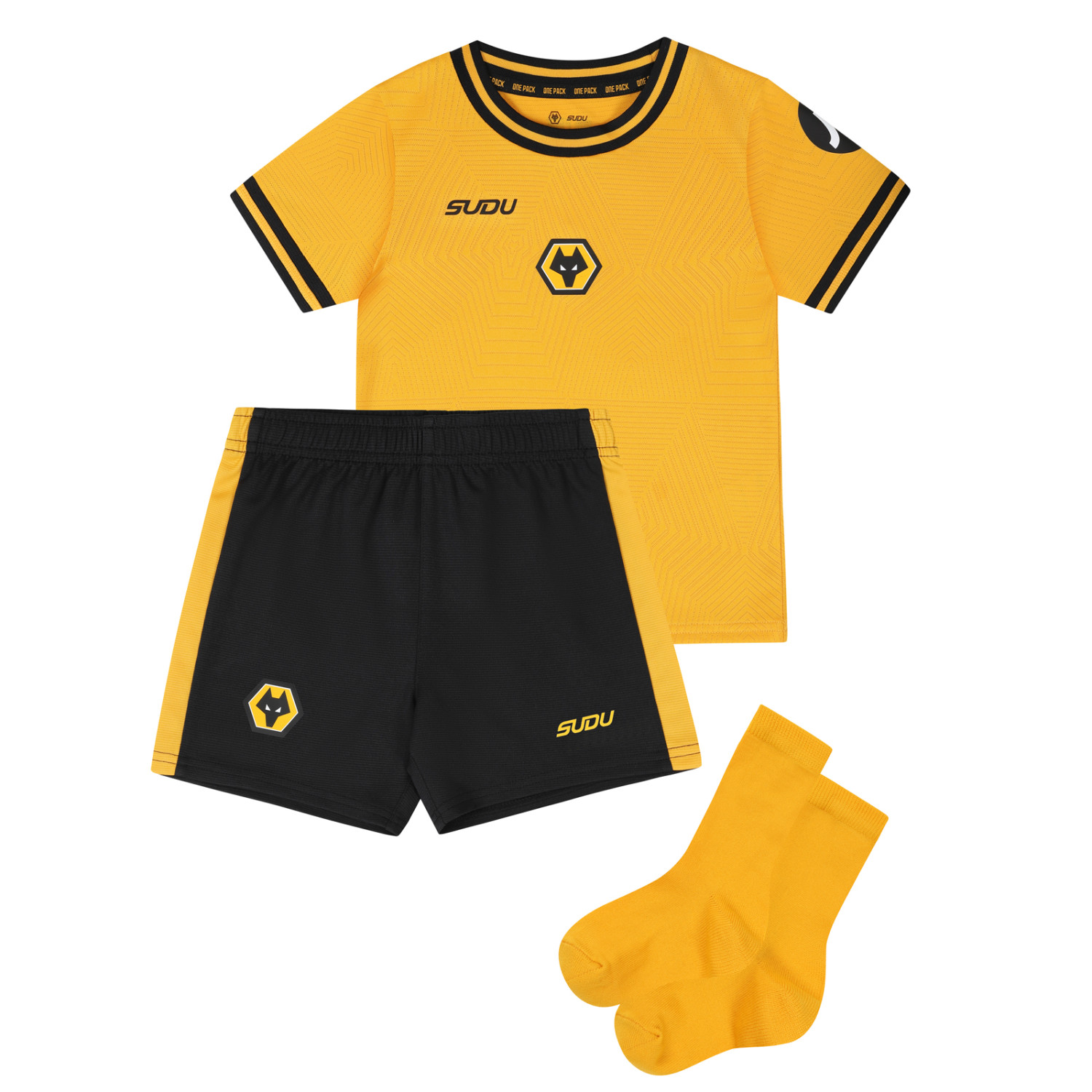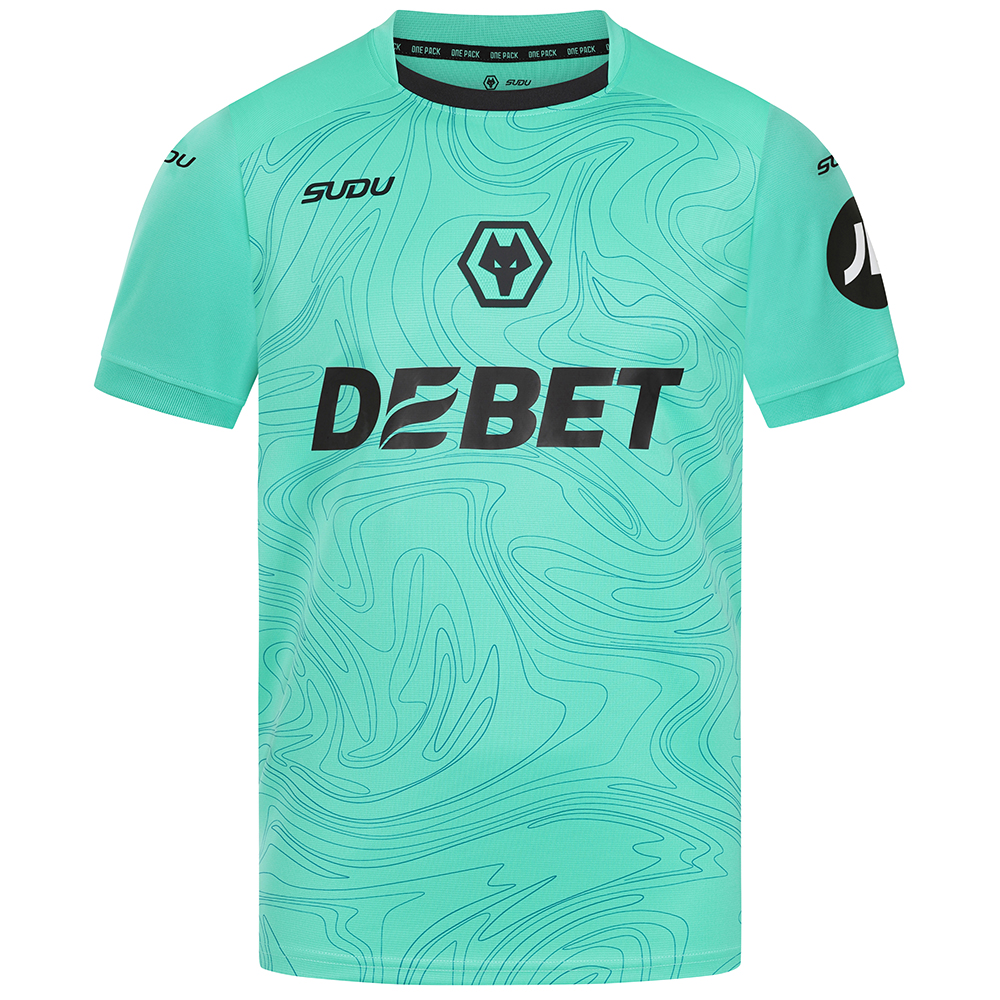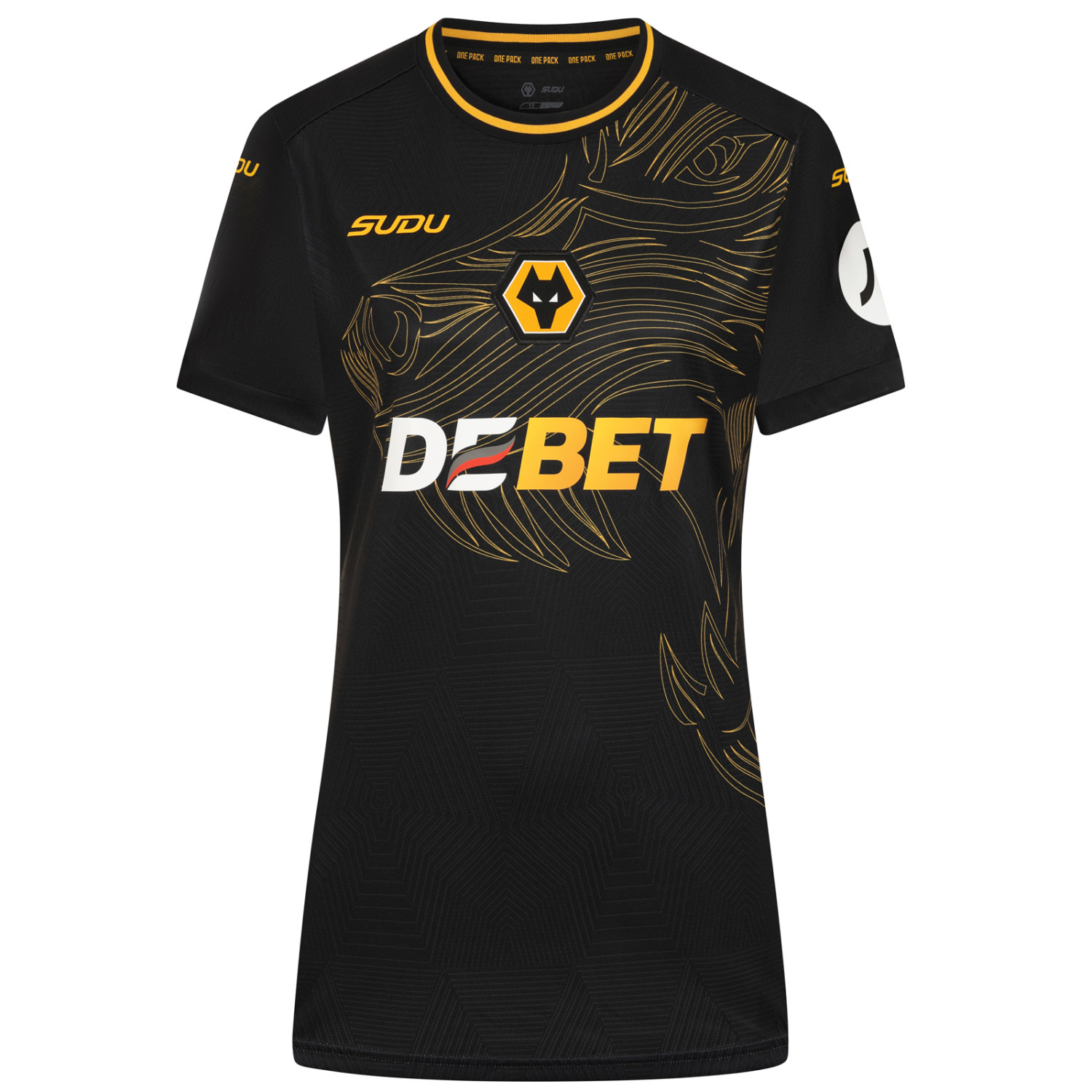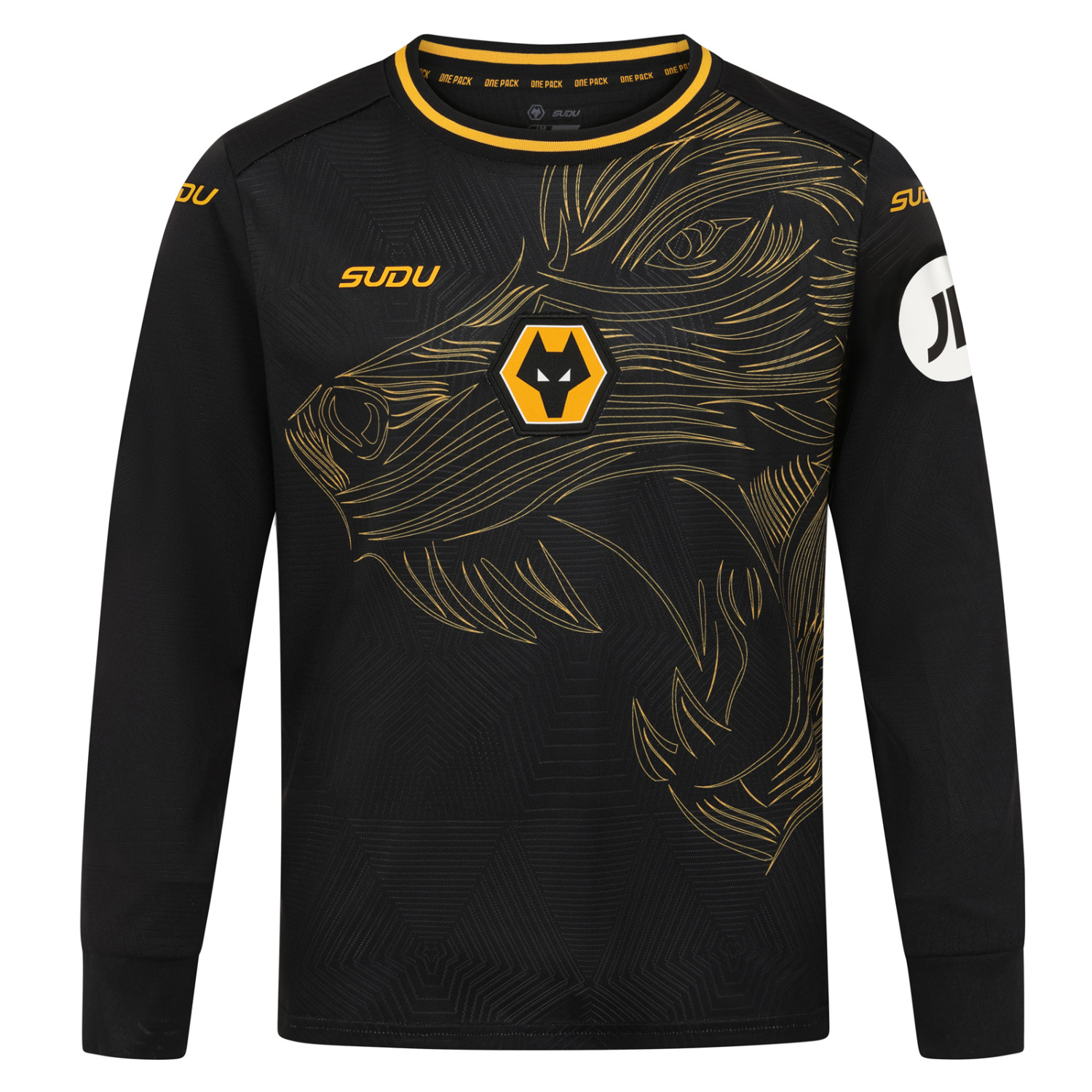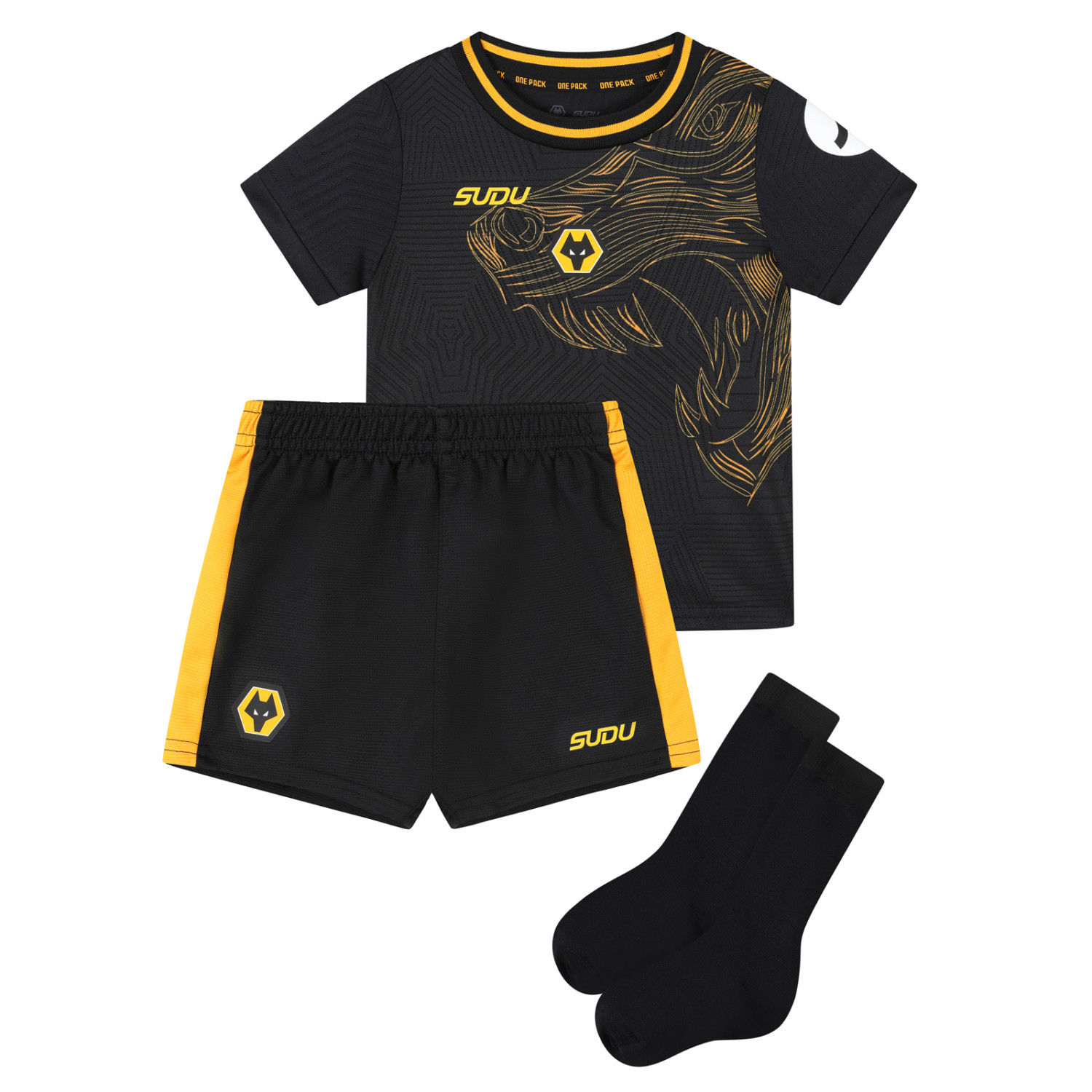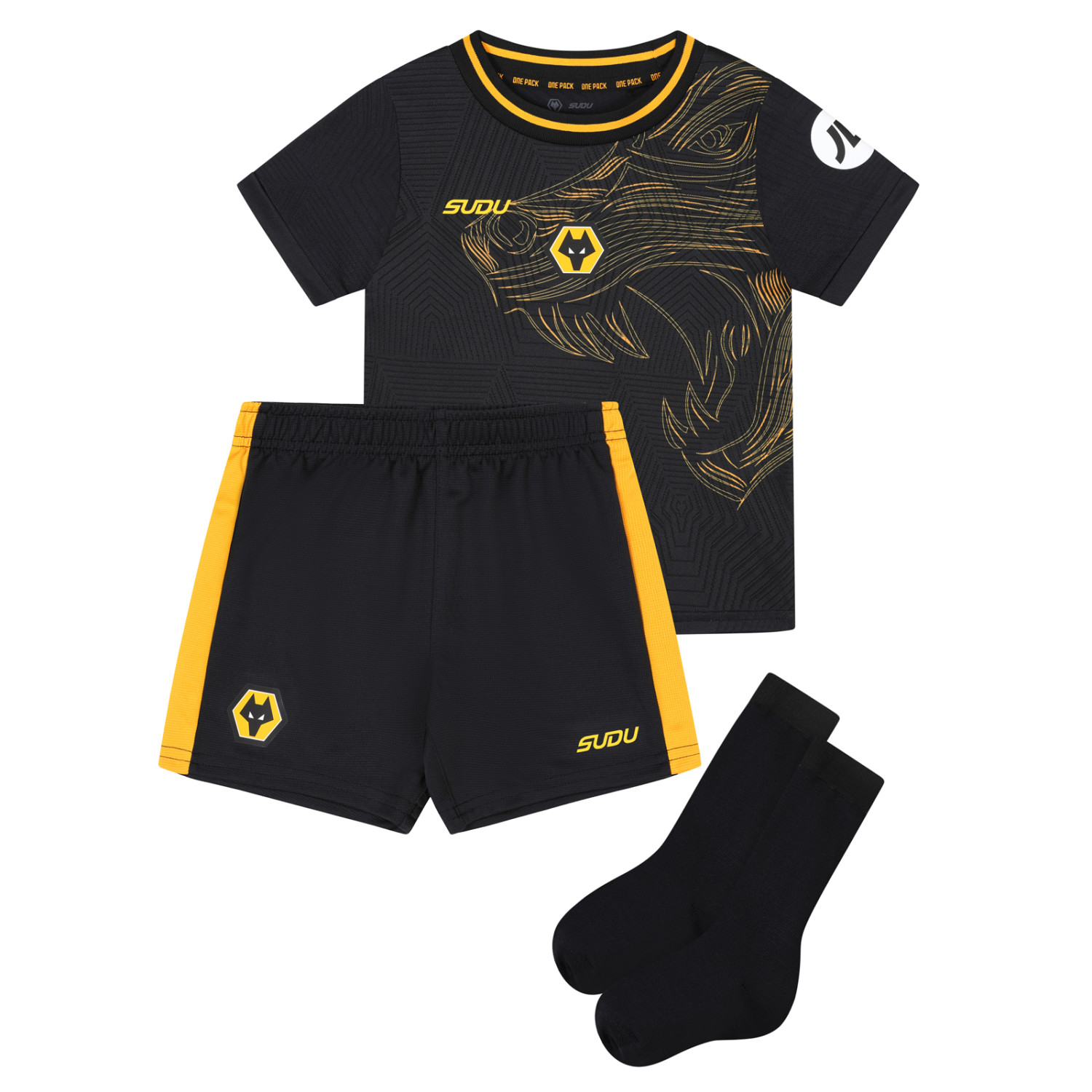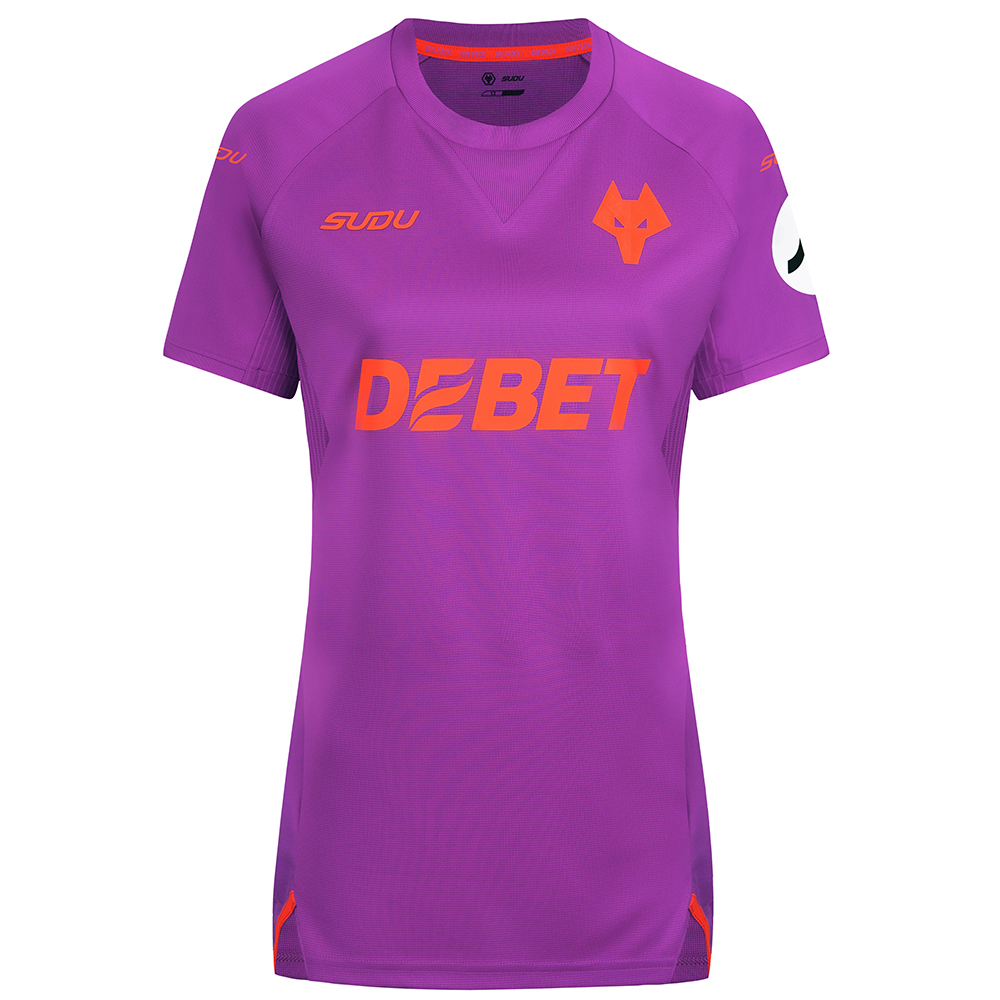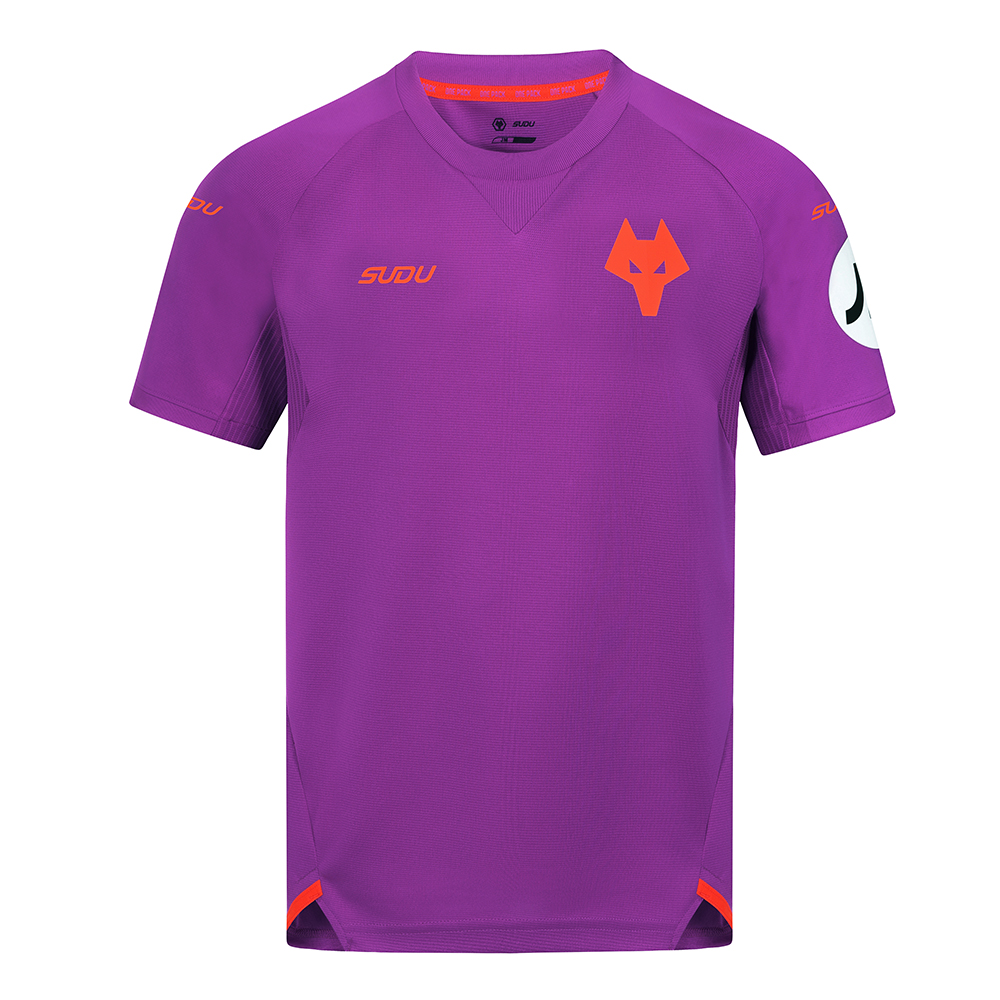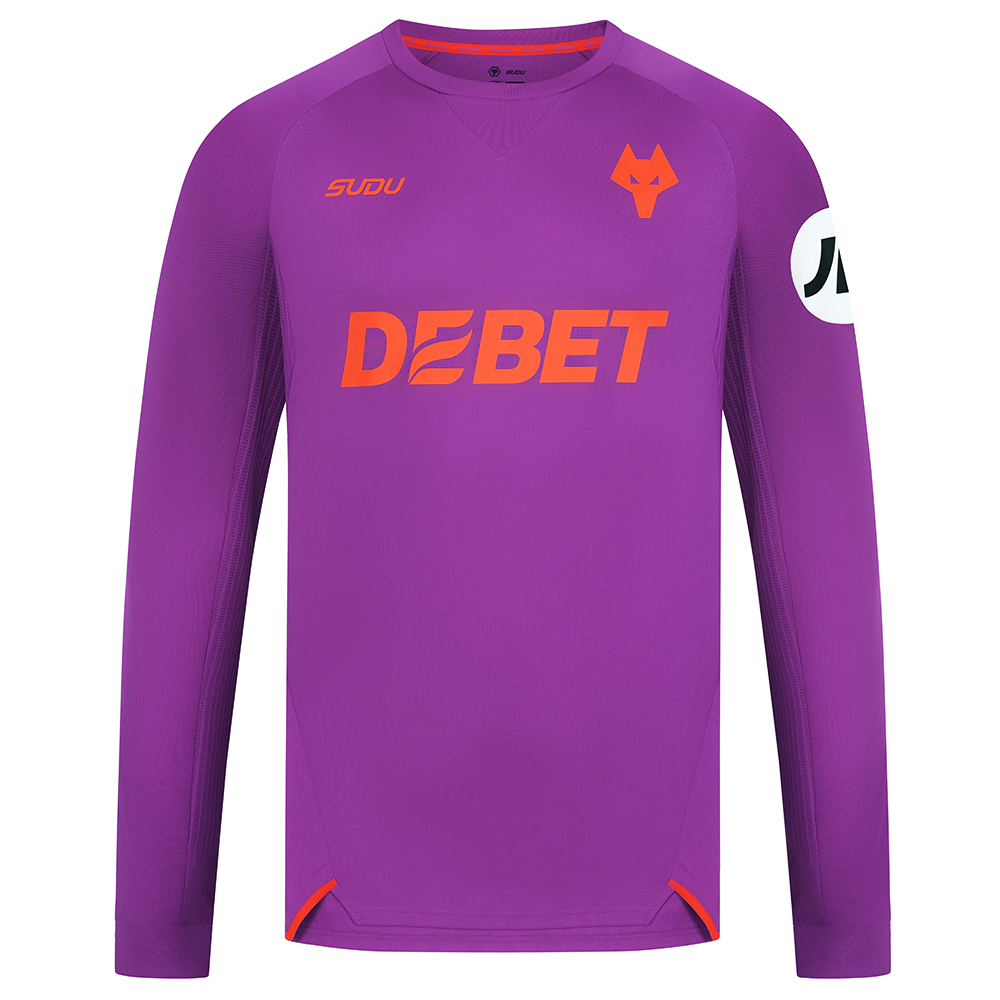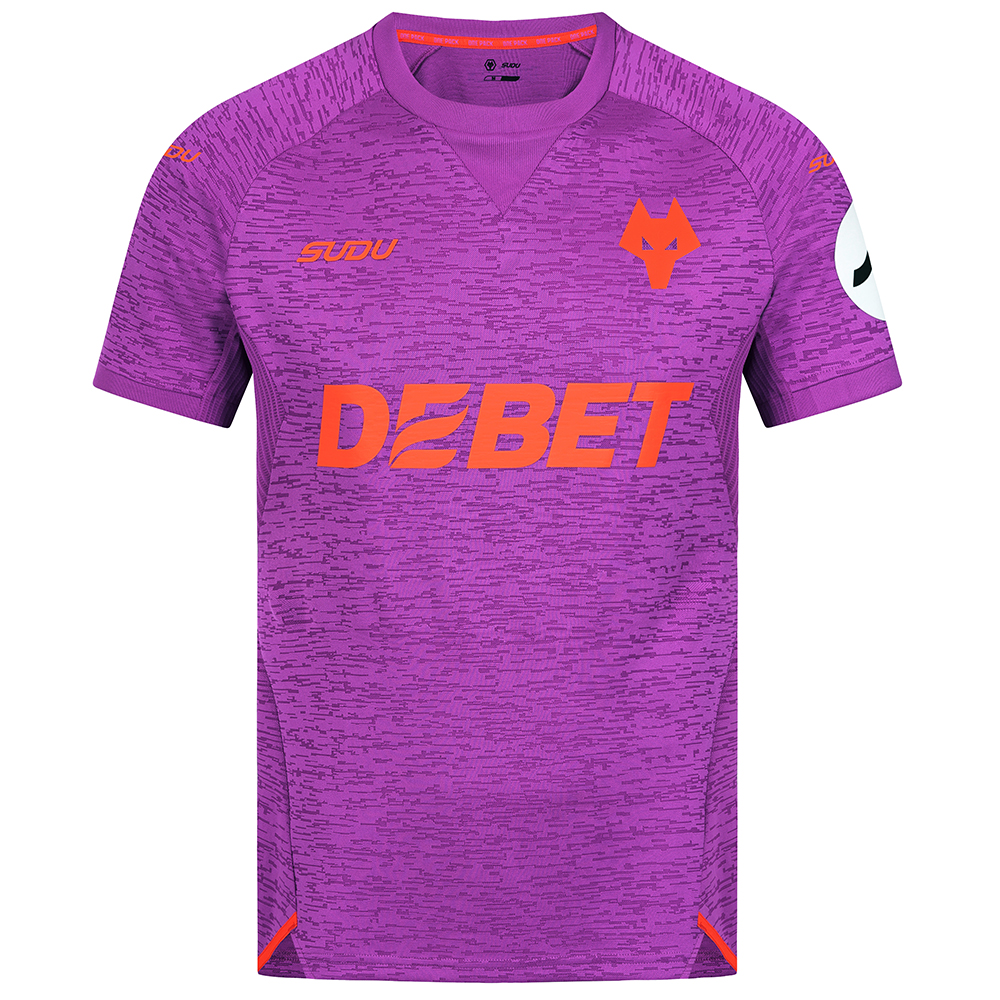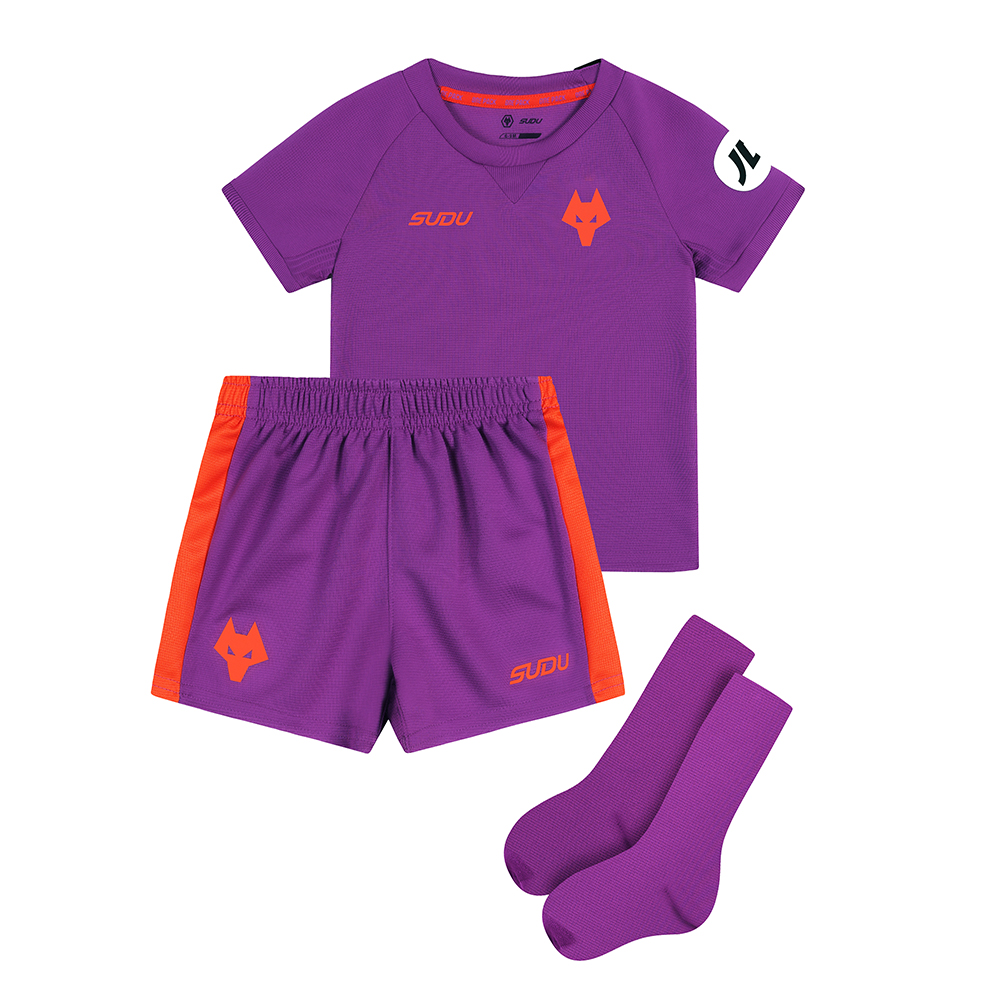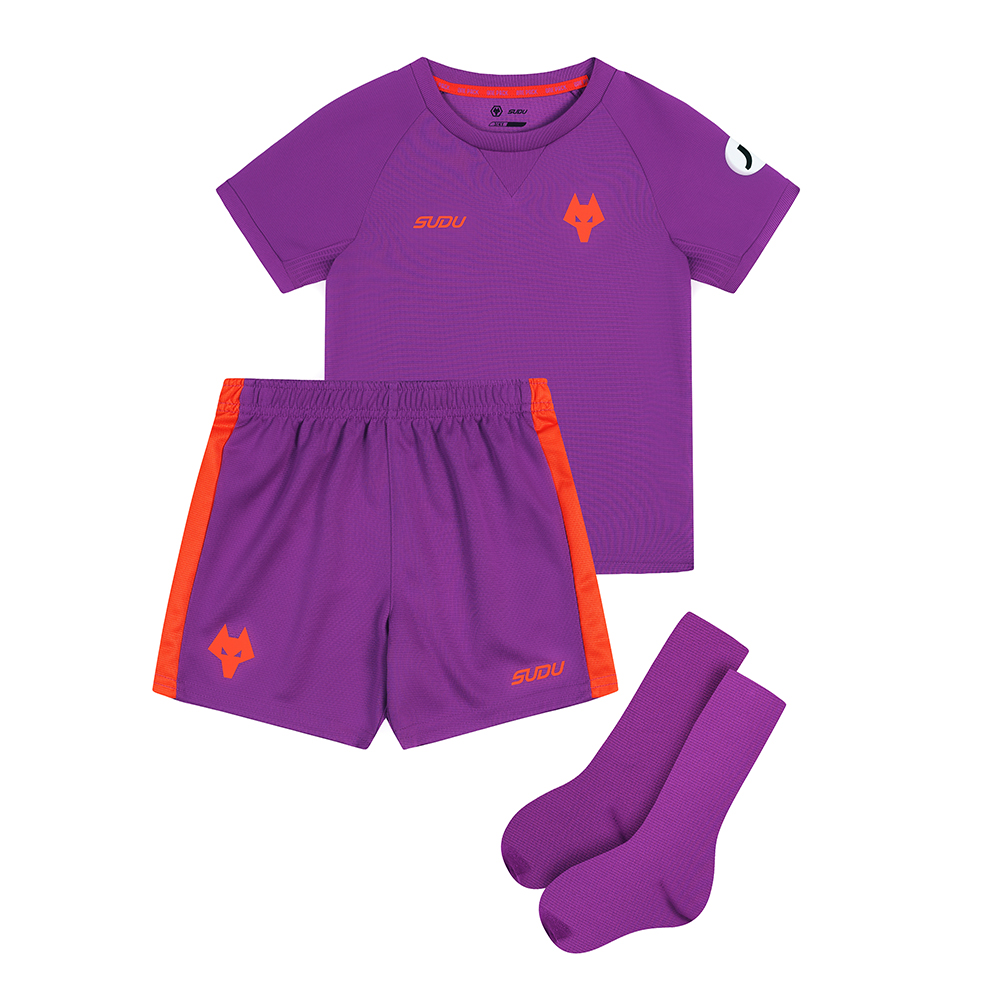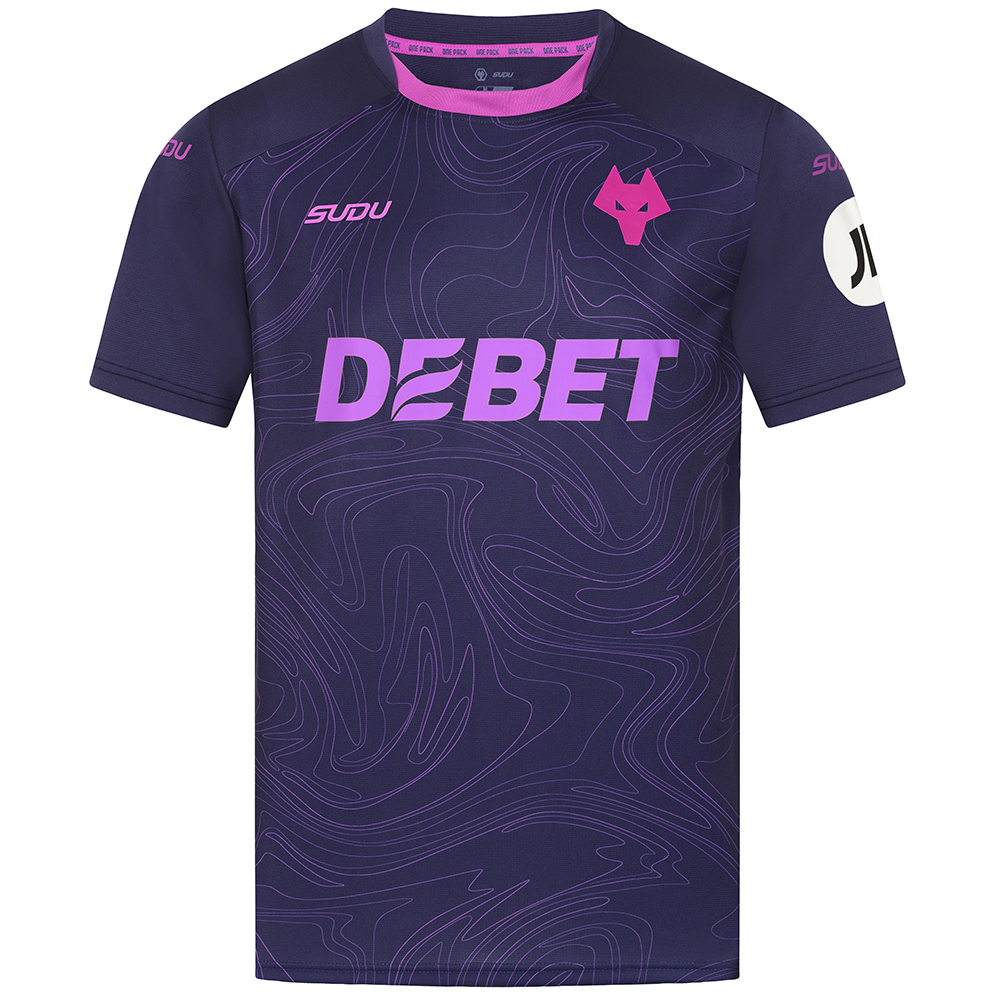In the lush, quiet hills of rural Barham, Jamaica, Trevor Lewis can hear echoes of Molineux, despite sitting 4,500 miles away from his spiritual home.
Gold and black is everywhere. The colours are proudly displayed on his home, on his new business, and now on the kits of young players he coaches through his grassroots academy.
For Trevor, who left his home and his grandmother at the age of 11 to join his parents in the Black Country, before returning decades later, it’s all part of a lifelong mission – to nurture young talent, support his community, and carry forward the spirit of Wolves across the Atlantic.
Born in Jamaica, Trevor first felt the pull of football not in his homeland but in Wolverhampton, where his love for the game bloomed among the terraced houses and parks of Whitmore Reans, his new home.
After arriving in the country in 1967, he was plunged into a vibrant, football-loving world he could barely have anticipated.
“When I arrived in England, I was lucky to find that we lived at Francis Street,” Trevor recalls. “It was just two minutes from Molineux.
“When I left Jamaica, I knew nothing about football. I'd had one experience probably a few weeks before I left – kicking a ball barefoot in the field, after a young man had brought one into the community. We just kicked it and all ran after it, not knowing much about the game.”
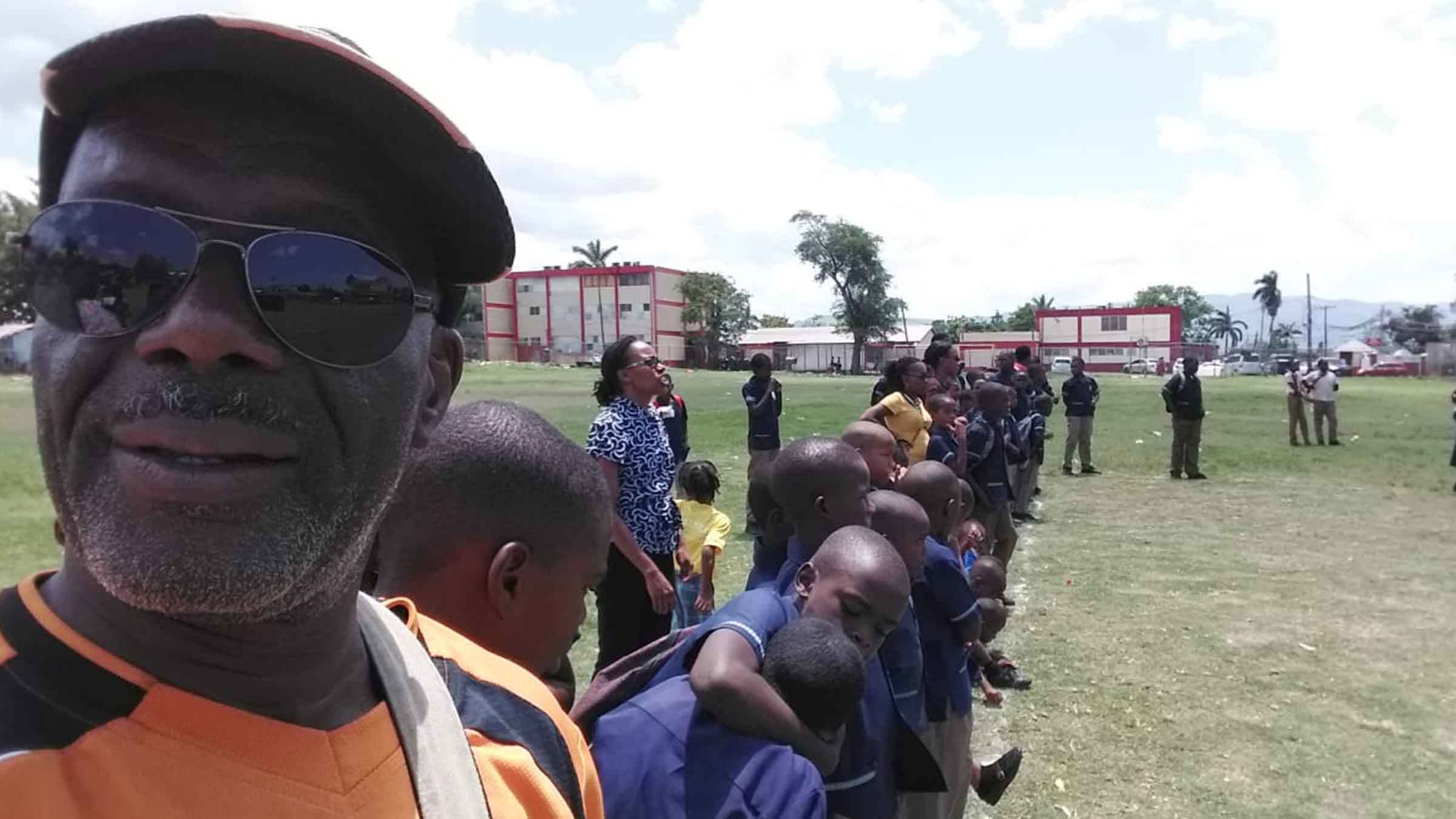
As Trevor settled into his new life in Wolverhampton, the community’s love for football enveloped him. He would watch the older boys play games in West Park, sometimes up to 20-a-side, and was soon drawn to the local football club.
“At the time, Wolves were in the second division. My brother – who was a few years older than me – took me to a couple of games at Molineux but I didn’t understand football yet.
“I was in this crowd of 30, 40 thousand people. I couldn't sit in the ground as it was all standing then, but I couldn’t see because I was so small. I was so squashed and I was looking up just to breathe, but that’s where my love for football started.”
Trevor’s passion for football only grew, both on the pitch and off. Attending Wobaston Secondary School – as Ormiston NEW Academy was known at the time – he threw himself into the game, joining school teams and developing his skills as part of Wolverhampton’s diverse football community.
As he grew older, Trevor’s football journey expanded. He joined the Afro Caribbean and Wolverhampton Electricity teams, often meeting other Black players who, like him, found camaraderie and purpose through sport.
"The Afro Caribbean club is driving a lot of what I’m doing now. We had two teams, Afro Caribbean and Jamaica City, which provided something for the Black guys in Wolverhampton, because we couldn't get into other teams, to be honest.
“There were some brilliant players, and a couple even went professional, like Tony Cunningham, who played for Newcastle United.”
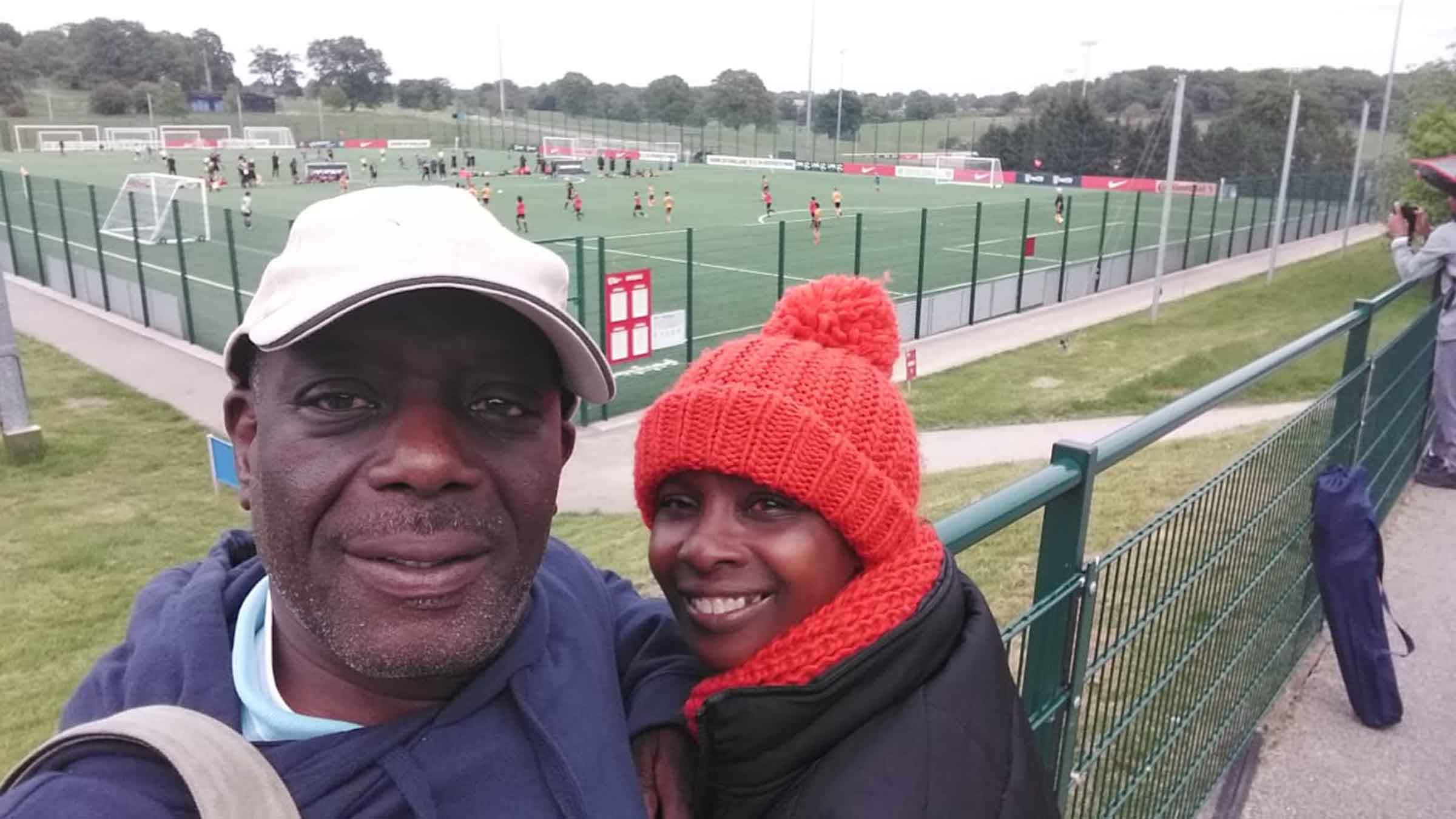
Through the Afro Caribbean club, Trevor also met friends for life, including Errol Williams, father of former Wales national team captain and Swansea City defender, Ashley. “Errol was a magnificent person to us and really helped the development of us as boys. We became good friends.”
A big part of his upbringing was his involvement with the Boys’ Brigade at Tabernacle Baptist Church, a space where young Black boys could develop confidence, values and connections – a rare place in 1960s Wolverhampton.
“A lot of the guys who went to play for Afro were in the Boys’ Brigade. We played football for the Boys’ Brigade, we’d play cricket, and there were some great men involved in that group.
“When I was in England recently, I had to go and search out one of the men who was the leader for the group. He’s in his 90s now and I just had to go and tell him how much I appreciate what he did to help us settle into England, assimilate and get the confidence to be ourselves as young Black men – because not many people his age at the time would have done that.”
After enjoying time on the pitch as a striker, winger and even left back, Trevor utilised the influence of those who welcomed him and made him feel at home in Wolverhampton to support the next generation coming through.
The links and connections he formed at the Afro Caribbean club as well as being involved in West Midlands football in the ‘70s, have helped set him up for what he continues to do today.
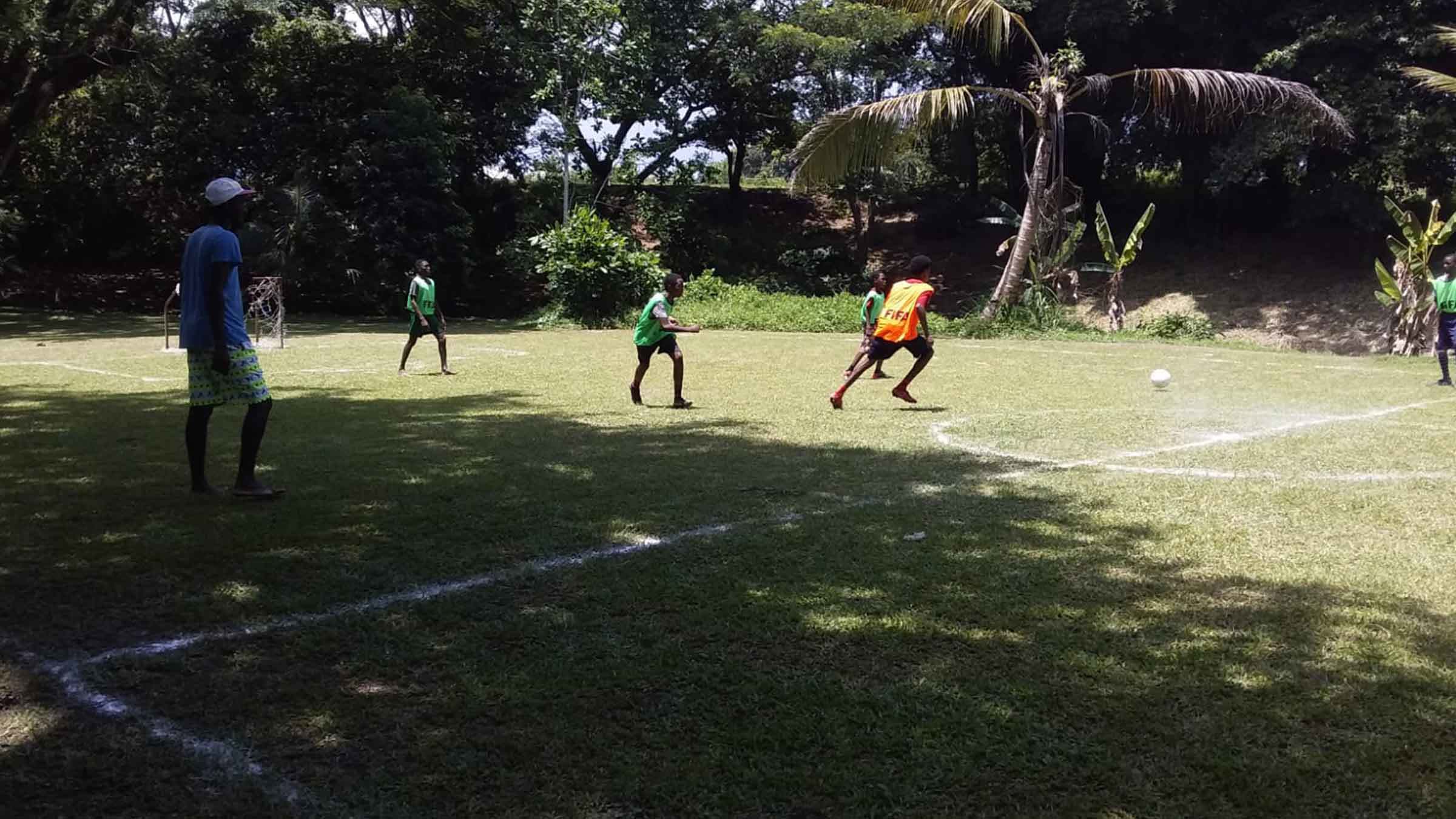
“Bob Hazell was at Wolves at the time when I was part of the organising committee at Afro, and one year for our end of season presentation, I had the pleasure of getting his details from the club.
“I arranged for him to come and give us our medals, and he was one of the first Black players to come and do that for us. Similarly, Cyrille Regis and Laurie Cunningham.
“Before Laurie went to Real Madrid, he was at West Brom, and I contacted Laurie to tell him about the club and he came to one of our Afro Caribbean dos. Laurie is one of the greatest footballers ever to walk on Albion’s turf, and we had a good relationship with Laurie and Cyrille.
“They used to come and watch teams that I managed in Dudley. Cyrille came to a couple of the under-17 games as I would try to involve those professionals with the young boys, and I know the boys really appreciated it.”
After decades spent in Wolverhampton and Dudley, where he met his wife Monica and had two children Michelle and Michael, Trevor knew his life’s purpose was leading him back to Jamaica. A promise he’d made to his grandmother before leaving was always at the back of his mind.
“When I left Jamaica at 11-years-old, my grandmother told me to go to England to learn, work hard, and then come home to make a difference back here – and I think I’ve tried to do that.”
With the experiences he’d built in England under his belt and a desire to invest in his community back home, Trevor searched for ways to give back.
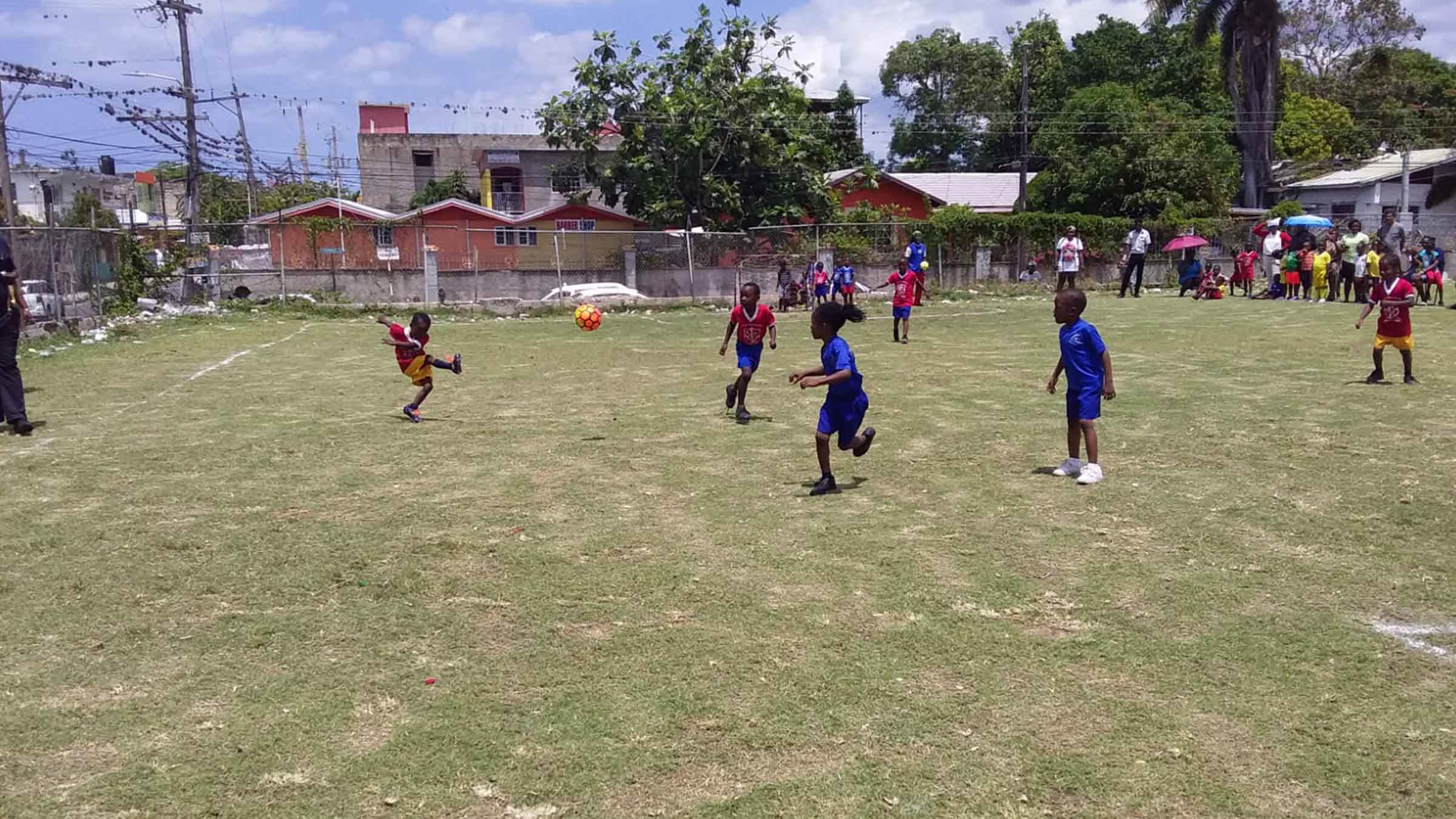
But it wasn’t until he bought a five-acre property along the Cabarita River – where he runs the Cabarita River Adventure and Mesopotamia Leisure Farm – that his vision for youth football could truly take shape.
“Luckily, I was able to buy this property on the riverside that had enough space to allow me to put up my own little pitch,” he says. “It’s not a full-size pitch, but you can’t find anywhere else in the area where the grass was cut or where there's even grass on the ground, so I wanted to take my own spot here and do it myself.”
Trevor’s football academy is a labour of love. A space where young boys from all backgrounds, many from underprivileged areas, can find purpose and community.
“I’ve held a few little tournaments, but mostly I train the boys on a weekend and then put them into competitions.
“Most of the competitions in this area are for adults, and there isn't much for the young boys, for the under-20s, everything is for the big men and that makes me angry. But that's why I've set up my little project.”
One of Trevor’s goals is to build an age-appropriate league in Westmoreland and he’s been in discussions with local and national football associations to help address this gap.
“It's all right training, but at the end of the day, the kids want some competition, and at the moment we’re structuring so our competition is internal, but ultimately, I've got this vision to create a league for the young children in this area.
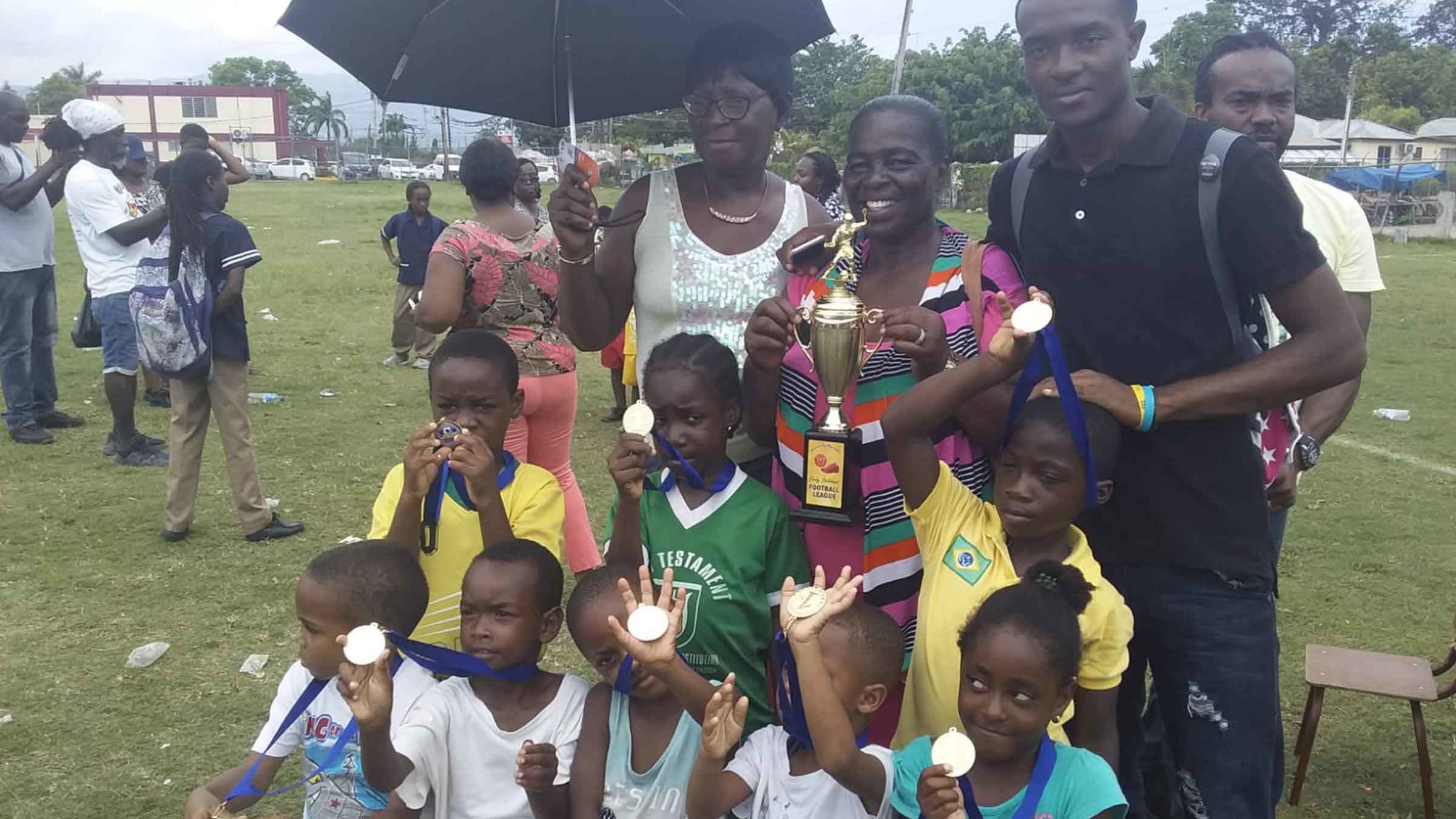
“For the Jamaican Football Federation and the Westmoreland Football Association, it’s part of their remit to cater for these young kids, but they aren’t coming into the rural parts of the country.
“If you're in the towns like Savanna La Mar, which is a bit more built up, some things happens there, but when you come out of those areas and into ‘the bush’, which is what people call where we are, there's a lot of people living in the bush who are not looked after and there’s nothing here, especially for young kids, so that’s what I’m trying to do.”
Trevor’s connection to Wolverhampton has remained strong, a bond symbolized by his support for Wolves and the Old Gold kits which represent his team.
His efforts of giving back to the young people of his community recently received a boost through Golden Black, the club’s very first Black supporters’ group, which facilitated a donation of Wolves gear for his academy.
“My vision is all about how we can make a difference in the area I live, especially Westmoreland. I love Westmoreland because it reminds me of West Midlands and Wolverhampton and I also love the gold and black colours of Wolves – they’re the colours I have on my house.
“I walk around the town with a Wolves shirt on, a Wolves coat on, a Wolves bag on, and I promote Wolves. I have a business that I’m building right now and I’m painting it black and gold to promote Wolves and I want to do more of it.
“In 2019, I went to watch one of my friends’ sons play for the Wolves Academy, and there was also a tournament that the Wolves team were involved in over at St George's Park. I went along with met Darius Vassell, who is coaching in the academy, and I remember saying to him at the time that I’d like to have these links with Wolves.
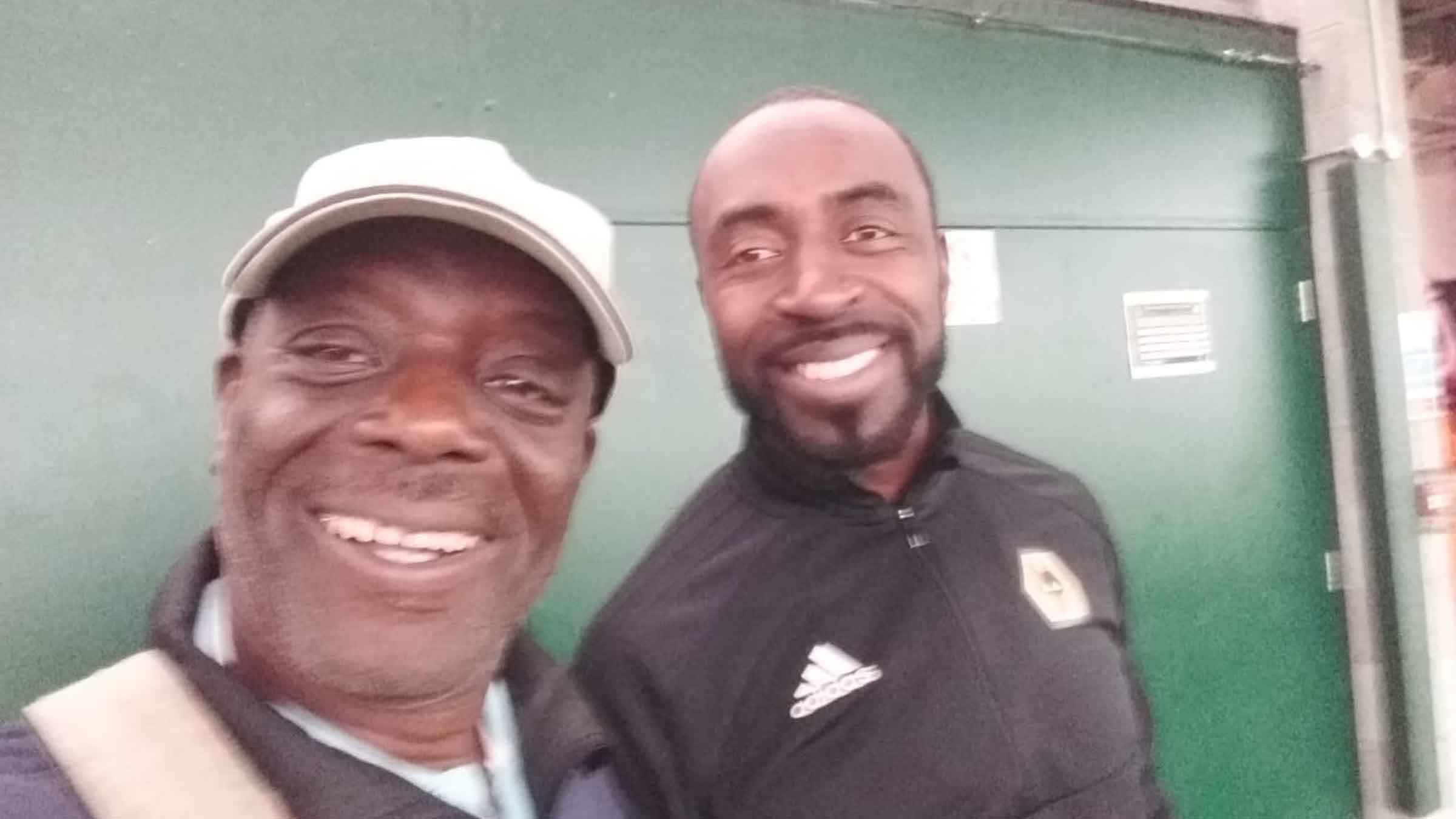
“I told him that I've been running this program in Jamaica, and I wanted some support to ensure that its sustainable and can continue after I’m gone. I’ve also spoke to Joe Jackson about this – I’ve known Joe for a long time and was part of his coaching team for a couple of years where I trained his under-12 team.
“That relationship has been building up to my work here in Jamaica. When I came back here, I wanted to make sure to use those links I’d formed in Wolverhampton. I want to provide for the young generation of kids here, but I also want to promote Wolves while I do it and get them supporting the club too.”
The recent donation made by Wolves means more than simply having new kits; it reinforces the cultural link between Jamaica and Wolverhampton, giving Trevor’s players a visual connection to a legacy that stretches back to his first days in England.
“I’ve had kit donations from people in England in the past. Joe Jackson has donated second hand boots and a lot of stuff over to us to use in recent years, but Keith Thompson, who is involved in Tividale Academy, heard about what I was doing here and one of the sets of kit he gave me was a West Bromwich Albion kit which was used by their under-21s.
“When I got that I thought, ‘Why am I receiving Albion kit? I’m a Wolves guy, we need Wolves kit! One day, I’m going to get that opportunity’.
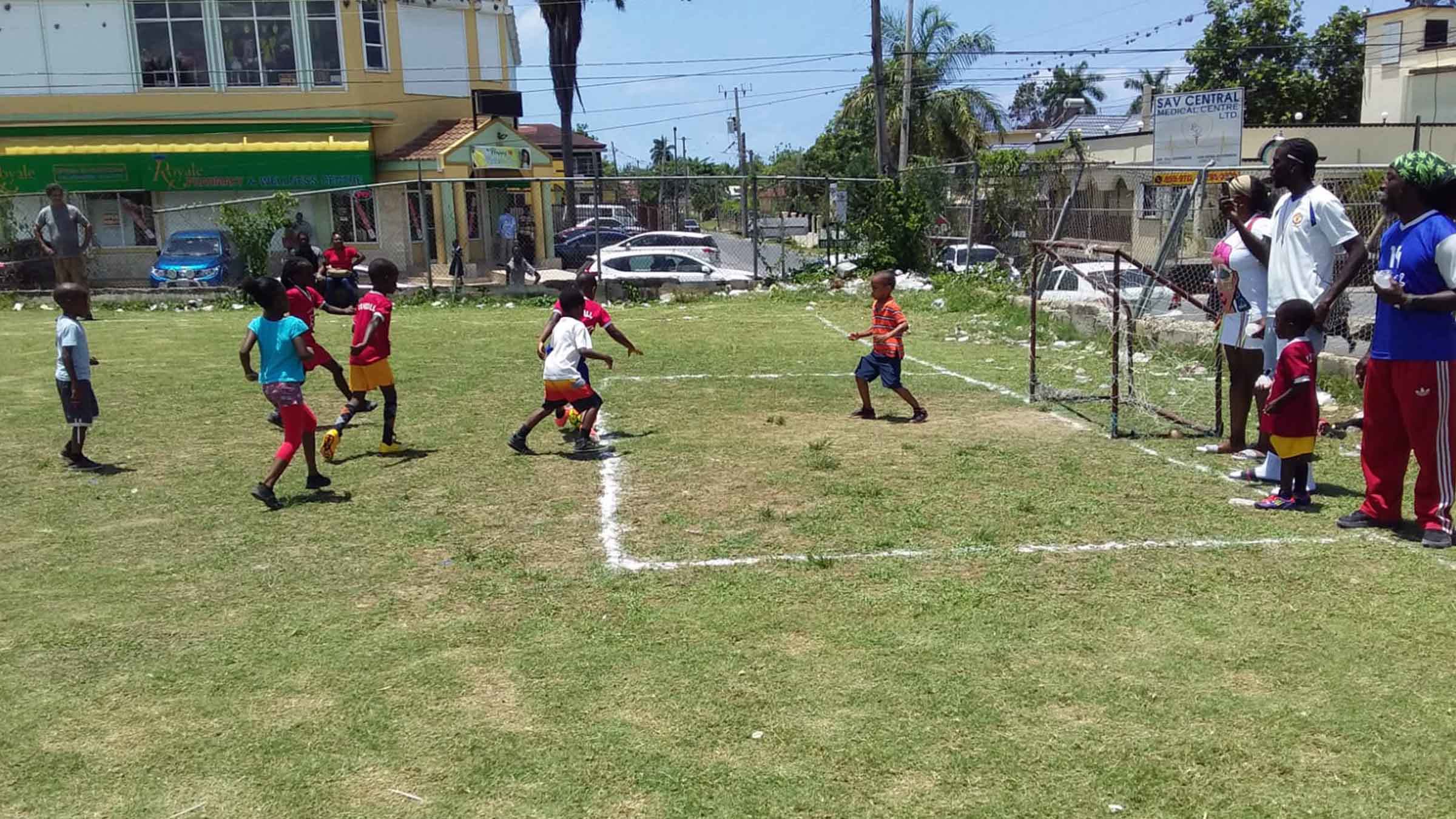
“It turned out the Golden Black group were meeting in Wolverhampton and one of my friends who lives in Jamaica was going over to England to be part of that meeting, so I asked him if he can put a request in for me for any kit that was going spare. I would have appreciated any second had gear as most of the boys here play barefoot, so come matchday, we have to borrow boots from wherever we can get them.
“I put that request out and Junior Hemans followed it through for me. He worked with Max of the media team to get some kit for us and it arrived this week. It’s not necessarily going to fit my younger boys, but that kit will be worn by the kids soon. Although there are no competitions taking place at the moment, we’ll make sure it is well used.”
Through Trevor’s journey, the story of a young boy leaving Jamaica and growing up in Wolverhampton comes full circle. Now in his sixties, he is still fulfilling the promise he made to his grandmother five decades ago.
By using the values and skills he developed in England and his lifelong love for football, he’s creating a legacy that connects his two worlds – Wolverhampton and Westmoreland – to inspire young people in rural Jamaica to dream big. And maybe one day, we’ll see one of Trevor’s young prospects run out at Molineux wearing the famous gold and black.
